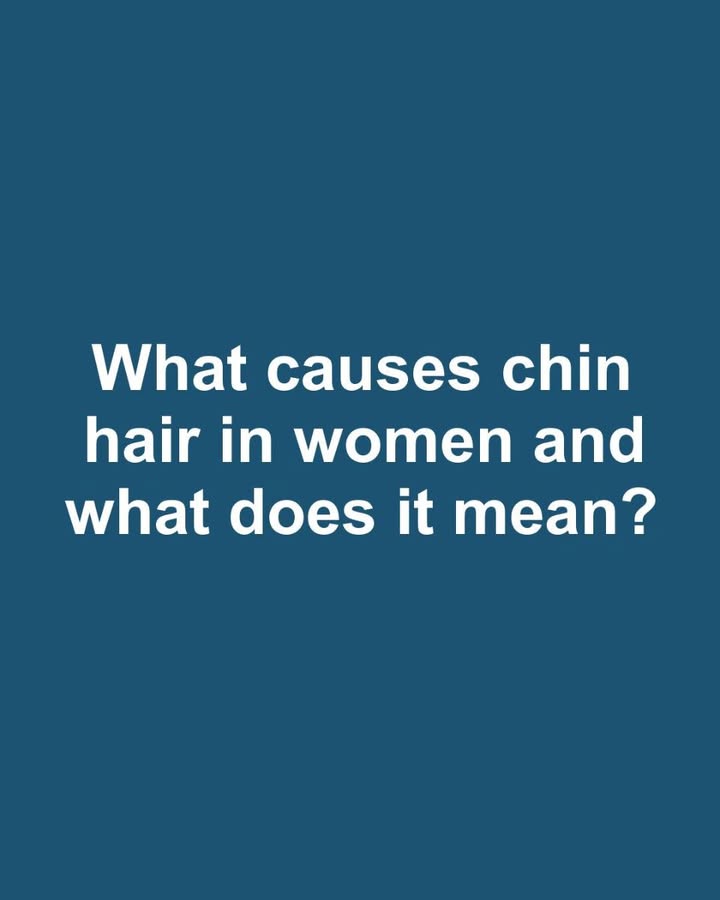Common Causes of Chin Hair in Women

I didn’t know about this!
The causes of chin hair in women vary. They can range from harmless reasons such as natural variations in hair follicle activity to underlying hormonal changes. Some women might notice more growth during certain periods of their life such as puberty or pregnancy.
Hormonal Factors Influencing Chin Hair
Hormones play a significant role in hair growth, especially androgens, which are typically considered male hormones but are also present in females. An imbalance in these hormones can lead to increased facial hair growth. Conditions such as polycystic ovary syndrome (PCOS) can elevate levels of these hormones and result in chin hair.
The Role of Genetics in Hair Growth Patterns
Genetics has a major influence on where and how hair grows on our body. If your mother or grandmother had similar hair growth patterns, it is likely that you might experience the same as genes dictate the sensitivity of hair follicles to hormones.
Medical Conditions Associated with Excess Chin Hair
Excess chin hair in women might sometimes indicate an underlying medical condition. Aside from PCOS, other conditions like adrenal gland disorders or Cushing’s syndrome can contribute to excessive facial hair growth due to elevated androgen levels.
Impact of Age and Menopause on Chin Hair Growth
As women age, especially during menopause, there is a shift in hormone levels. The reduction of estrogen and relative increase in androgens can cause an increase in facial hair growth, including on the chin.
Lifestyle Factors That Might Contribute to Chin Hair
Certain lifestyle factors such as stress, diet, and the use of certain medications can influence hormone levels and thus affect hair growth. For example, significant weight gain or loss, or a stressful environment, can impact hormone production.
Psychological and Social Implications of Chin Hair
For some women, chin hair can cause psychological distress or affect self-esteem, being perceived as unfeminine or unattractive. This can lead to anxiety and avoidance of social interactions, highlighting the importance of understanding and addressing these feelings.
When to Seek Medical Advice for Excessive Chin Hair
It is advisable to seek medical advice if chin hair growth is accompanied by other symptoms like irregular periods, sudden weight gain, or changes in voice. These could be signs of a hormonal imbalance or another health issue needing evaluation and treatment.
Common Treatments and Solutions for Chin Hair
There are many treatment options available for managing chin hair. These include cosmetic approaches such as tweezing, waxing, or threading, as well as more permanent solutions like laser hair removal or electrolysis. Medicinal treatments might involve the use of topical creams that slow hair growth.
Natural Remedies and Home Treatments
For those seeking natural remedies, options include sugaring, a traditional hair removal method, or using turmeric masks believed to slow hair growth. While not scientifically proven, these are popular among those who prefer gentle, at-home solutions.
Preventive Measures and Long-Term Care
While prevention might be challenging due to genetic and hormonal factors, maintaining a healthy lifestyle with a balanced diet, regular exercise, and stress management can potentially balance hormone levels and minimize unwanted facial hair growth.
Conclusion: Embracing and Managing Chin Hair
Chin hair, while sometimes distressing to women, is often a normal part of life. Understanding its causes and finding effective ways of managing it can help women embrace their bodies. Whether through medical advice, lifestyle changes, or acceptance, it is important to approach the issue with a holistic perspective.
